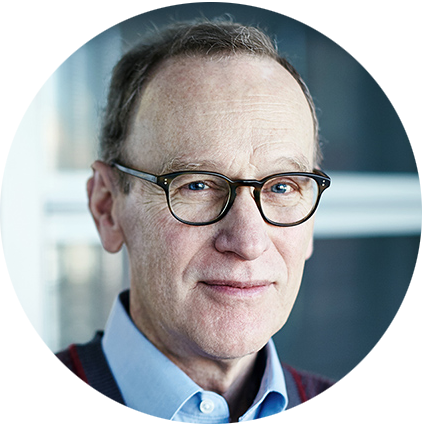
To my fellow changemakers,
The end of my tenure at MFH is drawing near. My upcoming retirement gives me the opportunity to reflect on our shared path and our shared priorities. Many of you will be familiar with the word “changemaker,” and if you’re reading this it is quite likely you are one. In thinking about the past decade of our change-making work together, let’s start with some basics: what is a changemaker, who is a changemaker, and why am I writing about this now, on my way out?
I like this definition of changemaker:
“Someone who has the freedom, confidence, grit, and societal support
to address social problems and drive change – all for the common good.”
You know you are a Missouri changemaker when your efforts fit this description. Organizations can be changemakers too, just like people. Missouri Foundation for Health has a special role in the state as a philanthropic organization: we are a private institution devoted to the public good. That is, we sit in the social sector – neither a for-profit entity nor a governmental institution. We are private, nonprofit, and driven by a mission to eliminate the underlying causes of health inequities, transform systems, and help individuals and communities thrive. In a word, MFH is a changemaker.
What people and institutions are part of MFH? Think of all the changemakers who strive toward an equitable, healthy, and thriving Missouri. Over two decades tens of thousands of you from across the state have become part of the collective work in service to the Foundation’s mission. The work depends on the widespread activity and commitment of individuals, communities, and organizations across Missouri. Your advice, guidance, local knowledge, energy, and compassion fuel MFH’s efforts.
Currently, many of us work together to reduce firearm violence, to prevent infant mortality, to strengthen our behavioral health systems, to increase insurance coverage and access to care, to promote racial healing, and to build an environment that fosters health equity. As changemakers, you generate creative ideas and find the best innovative opportunities for healthy progress. Earlier collaborations laid the foundation for current changemaking, and many others will join our efforts in the coming decades. MFH is all of us who help make progress toward a healthier Missouri. If you are a changemaker you are a part of MFH – our successes, our failures, and our frustrations at how much more positive change is urgently needed.
The health challenges of the past have become the health challenges of the present, intensified.
We’ve been through a lot together. The Supreme Court made Medicaid expansion optional in 2012, and Missouri officials balked, adding almost a decade of unnecessary delay for low-income Missourians. Ferguson and Black Lives Matter laid bare the racial inequities deeply rooted in our society, catalyzing a reckoning that continues to unfold. Threats to women’s reproductive health, rural hospital closures, deaths of despair – each by itself a formidable challenge to Missourians’ health – have been eclipsed by COVID-19, now the leading cause of death. The health challenges of the past have become the health challenges of the present, intensified.
A pause for reflection offers the chance to recognize all your contributions, too many to list, in rising to these challenges and doing inspiring work. There is movement. We have growing networks of effective changemakers advancing community health. Medicaid will be expanded, behavioral health will continue to get better, and, despite the missteps, we are emerging from the valley and can see a future where COVID-19 no longer decimates the public’s health, the economy, and society overall.
Even with the positive progress, we must face the reality that Missouri health is not what it should be, and the scale of needed change is massive. In numerous state comparisons Missouri’s rank on health indicators has drifted downwards over the past two decades and now is typically in the bottom quarter of state rankings. We must acknowledge the bigger challenges that threaten our future health, broadly conceived. Let me highlight just three.
First, we need more robust and effective governmental institutions. Changemakers should invest time, energy, and support so our government can carry out its responsibilities. These responsibilities include numerous factors that determine population health: public health, education, shelter, transportation, environmental health, safety, and more. Without effective government, population health in Missouri will continue to lag other states.
Second, we need civility to counteract the deep divisions that are pulling apart our social fabric. This is an essential first step to reaffirming norms of discourse and behavior needed to move toward addressing the third challenge: achieving a new social compact.
A new social compact addresses the fundamental basis of our health inequities. Here our racial history and present-day structural racism come into play. Racism pervades health inequities more than any other factor. No matter the specific underlying health determinant – health care, housing, income, food, wealth, economic opportunity, education, civic participation, criminal justice – structural racism is embedded in policies and practices that lead ineluctably to systemic, enduring racial inequities, giving lie to our country’s stated values. We know how structural racism works. Our tasks ahead must include a commitment to deepening our understanding of these policies and practices and working collectively to restructure them to foster more equitable health opportunities.
It has been a gift and a privilege for me to lead Missouri Foundation for Health and join you in change-making work. The arc of Missouri’s future is not pre-determined; your efforts are essential to bend it toward better health for all. Knowing your passion, commitment, and talents, I’m confident you will be successful.



